
A recent survey of patients with bipolar I disorder showed the extent to which they are so bothered by side effects to antipsychotic (AP) medications that they will stop taking them, or will trade more symptoms for fewer side effects.

A recent survey of patients with bipolar I disorder showed the extent to which they are so bothered by side effects to antipsychotic (AP) medications that they will stop taking them, or will trade more symptoms for fewer side effects.

The year 2018 was when cannabidiol (CBD) "jumped the shark," according to a nurse practitioner who works with patients who use it.

The idea that zero suicides are possible must begin with “the radical conviction that ideal healthcare is attainable,” said C. Edward Coffey, MD, affiliate professor of psychiatry and behavioral sciences at the Medical University of South Carolina.

Genetics are increasingly playing a role in various aspects of healthcare, and mood and psychiatric disorders are no exception.

A proper diagnosis between bipolar disorder and borderline personality disorder have important implications as treatment decisions differ based on the diagnosis

Unraveling the possible causes and triggers of agitation in people with dementia is worthy of detective work, according to a recent presentation.

The survey results demonstrate an unmet need for new oral antipsychotics with favorable risk-benefit profiles, researchers said.

Clinicians need to keep certain facts about mental illness and unintended pregnancy in mind when treating female patients of reproductive age, said an expert in mental illness, pregnancy, and women's health.

As data continues to show increases in the rates of suicide in the United States, healthcare systems are grappling with addressing the issue in an effective and sustainable way.

Medication adherence is critical not only to clinical outcomes, such as preventing readmissions, but also to containing costs, with adverse outcomes as a result of nonadherence often resulting in higher costs for both the patient and the healthcare system. Ensuring adherence can be especially challenging among people with mood and psychotic disorders.

Jon Grant, MD, JD, MPH, a professor of psychiatry and behavioral neuroscience at the University of Chicago and expert in severe and complex cases of obsessive compulsive disorder, discusses evidence-based approaches to this little-understood disease.

Emerging technologies have the potential to push psychiatry into a new era of evidence-based care, with improved treatment and access.
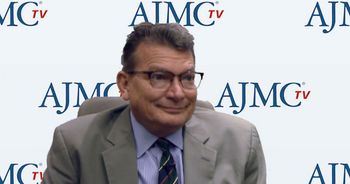
The easiest to treat patients are those who have not been ill too long, who don’t have a lot of complicating conditions, who have become depressed at a time in their life where there are clear cut, stressful factors, and who have ample social support, explained Michael Thase, MD, professor of psychiatry and director of the Mood and Anxiety Program at the University of Pennsylvania.
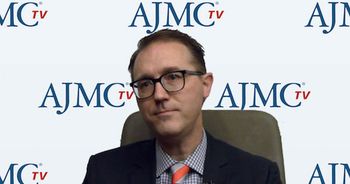
W. Clay Jackson, MD, DipTh, clinical assistant professor of psychiatry, department of family medicine, University of Tennessee College of Medicine, discusses factors leading to and telltale signs of clinician burnout, best practices for addressing burnout, and how well the United States health system addresses burnout.

There is a subset of patients who don't respond to monoamine modulating antidepressants, so there has been a focus on looking for other potential pathways for treatment, said Michael Thase, MD, professor of psychiatry and director of the Mood and Anxiety Program at the University of Pennsylvania.

W. Clay Jackson, MD, DipTh, clinical assistant professor of psychiatry, department of family medicine, University of Tennessee College of Medicine, discusses how clinician burnout impacts not only personal outcomes, but also patient outcomes.

Family physicians and internists, as well as emergency medicine and critical care medicine have the highest rates of clinician burnout, said W. Clay Jackson, MD, DipTh, clinical assistant professor of psychiatry, department of family medicine, University of Tennessee College of Medicine.

Stigma is less prevalent now than it was 20 or 30 years ago, but people still often equate depression with weakness, explained Michael Thase, MD, professor of psychiatry and director of the Mood and Anxiety Program at the University of Pennsylvania.

Medications for autism spectrum disorder should not replace an effective behavior plan, according to a presentation at Psych Congress 2018. A psychiatrist with 2 twin brothers with the disorder, as well as a daughter, shared her experiences in a presentation called “My Personal and Professional Journey Through Autism: Update on Autism Treatment Through the Lifespan.”
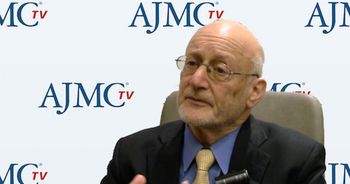
Patient and family engagement is important for ensuring positive clinical outcomes in schizophrenia, which can affect a patient's insight and judgement, explained John Kane, MD, professor and chairman, department of psychiatry, The Donald and Barbara Zucker School of Medicine at Hofstra/Northwell, The Zucker Hillside Hospital.
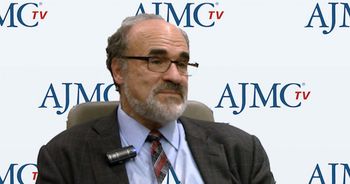
There are challenges with diagnosing attention-deficit/hyperactivity disorder (ADHD) and bipolar disorder because of overlapping symptoms, explained Michael First, MD, professor of clinical psychiatry, Columbia University New York State Psychiatric Institute.

A phase 3 study of ALKS 3831 idemonstrated greater antipsychotic efficacy compared with placebo, as measured by rating scales, according to a poster presented at Psych Congress 2018.

Using multiple drugs to treat a single condition is growing, said Paul Zarkowski, MD, a clinical assistant professor at Harborview Medical Center and psychiatrist in Seattle, Washington, at Psych Congress 2018. But how much do we know about how well they work?

At Psych Congress 2018, 2 experts in the field of psychiatry squared off in a session called “The Great Debate in Contemporary Psychiatry: The Use of Antidepressants in Bipolar Disorder," about whether antidepressants should be used to treat patients with bipolar depression.

Disasters, whether they are natural disasters like hurricanes or mass shootings, are happening with increased frequency and at shorter intervals, and that means populations are being exposed to trauma more frequently, according to a presentation at Psych Congress 2018.

What is the role of inflammation in major depressive disorder (MDD)? In a session called “What�’s Hot: An Inflammatory Take on the Immune System in Psychiatry,” Charles L. Raison, MD, from the University of Wisconsin, Madison, presented recent findings in this area, including how subgroups of depressed individuals show increased levels of inflammatory biomarkers.

A survey of people with depression seeking information about their perspectives and experiences living with the disease found that even though most took antidepressants, 42% of patients did not find them helpful, according to a poster presented at Psych Congress 2018.
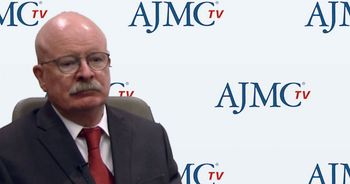
The core feature of internalized stigma is shame, and it leads to avoidance of treatment or help for patients with mental illness, explained Joseph McEvoy, MD, professor of psychiatry and health behavior, Medical College of Georgia.

In the last 30 years, there have been easier to prescribe, safer antidepressants for major depressive disorder, as well as the introduction of easy-to-learn approaches to therapy, but 40% or so of people suffering from depression aren’t in treatment, explained Michael Thase, MD, professor of psychiatry and director of the Mood and Anxiety Program at the University of Pennsylvania.

Postpartum depression is the most common obstetric complication, said Marlene Freeman, MD, yet there is a surprising level of debate over how to define it and missed opportunities for screening.

259 Prospect Plains Rd, Bldg H
Cranbury, NJ 08512
© 2025 MJH Life Sciences®
All rights reserved.
